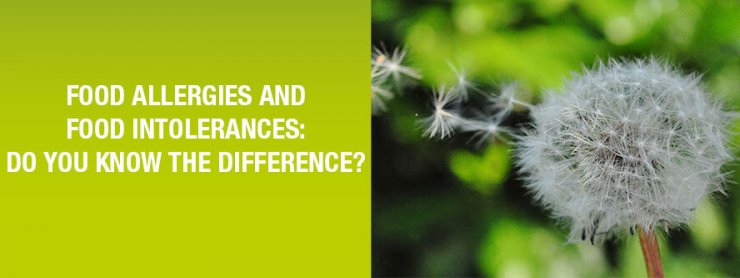It is often difficult to find out which foods are not tolerated by the body and why. Was it the muesli at breakfast, the apple you snacked on in between meals, the pasta with plenty of cheese at dinner or could it even have been the glass of wine? There are many reasons why individual foods can trigger discomforts such as flatulence, diarrhoea, headaches or skin problems: e.g. a delayed food allergy, an immediate allergy, coeliac disease, fructose malabsorption or lactose or histamine intolerance.
These reactions are generally characterised as adverse food reactions. A more precise distinction is made between reactions that are triggered by the immune system (allergies) and reactions that are not triggered by the immune system (intolerances). With such a multitude of intolerances and test procedures on offer, it is not easy to maintain an overview.
When it comes to allergic reactions, there are different types. Best known is the immediate type, an IgE-mediated allergy. A typical example of this is hay fever – many people are familiar with it because it occurs as soon as the first rays of sun in spring entice you to go outside. Immediate allergies also include those caused by e.g. household dust or pet hair. The allergic reaction occurs directly after contact with the allergen. An immediate reaction can also occur when food is consumed. This usually manifests itself within a few seconds to minutes in the form of itchiness, blocked nose, swelling of the oral mucous membranes or even in an anaphylactic shock.
Then there is the delayed food allergy, known as the type III allergy, an IgG mediated allergy. The symptoms usually appear a couple of hours or even days after food consumption. Supposedly harmless foods might cause a chronic infection that can spread throughout the body as the result of an immune response. If food constituents are identified as foreign bodies by the immune system, so-called IgG antibodies are formed to counteract them. The complaints can range from diarrhoea over nausea to headaches, skin problems, weight gain and others.
Adverse food reactions at a glance
| Type | Cause | Typical symptoms |
|---|---|---|
| Immediate allergy Type I IgE-mediated | Immediate reaction of the immune system (seconds to minutes) Acute | Rashes Shortness of breath Vomiting Diarrhoea Anaphylactic shock |
| Delayed food allergy Type III IgG-mediated | Delayed reaction of the immune system (hours or days) Chronic | Flatulence Diarrhoea Migraines Skin problems Joint pain |
| Coeliac | Reaction of the immune system (autoimmune disease) | Diarrhoea Bloating Weight loss Nausea |
| Histamine intolerance | Inhibition or lack of enzymes that break down histamine | Migraines Diarrhoea Palpitations Itching Running or blocked nose |
| Lactose intolerance | Lack of enzymes that break down lactose | Abdominal pain Flatulence Colic Nausea Diarrhoea |
| Fructose malabsorption | Digestive problems | Abdominal pain Flatulence Diarrhoea Depression |


